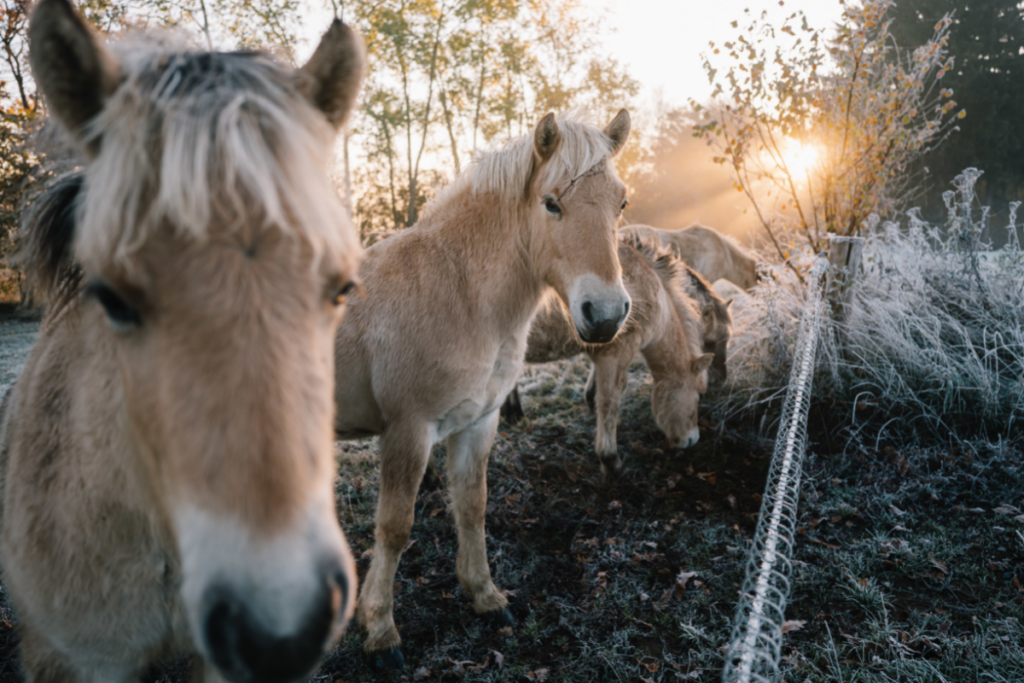Keep your horse happy and healthy during the colder winter months with our 7 top tips for winter horse care.

- Let Them Eat Like a Horse
During colder weather horses will burn more calories trying to keep warm. Therefore their calorie intake needs to increase during winter. Generally during colder months paddocks, grasses and pastures aren’t as good or nutritionally dense. Paddock grazing horses should be supplemented with hay or feed to account for the less feed in the paddock. - To Rug or Not
For horses in poor condition, older horses, horses that need to maintain their weight or for horses that are losing weight, rugging is a good idea. A rug will mean a horse will need to expend less calories trying to stay warm. Make sure that the rug is good quality and fits well. Rugs should be checked daily to ensure they are sitting correctly, not rubbing and all clips are still working. Do not leave wet rugs on horses as they create an ideal environment for bacterial and fungal growth. - Shelter
No matter the breed or age of horse they should have access to shelter from rain and wind. Stables or sheds are ideal but if not available trees do provide shelter and wind breaks. - Grooming
As your horse coats grow in longer and thicker in the winter it is important that you brush & groom your horse on a regular basis. Brushing helps remove dead skin cells and spread the natural oils around the coat. Plus it prevents dreadlocks and mats from forming, removes dirt and keeps them looking good. - Hoof Care
Hoof care is important year round. Make sure that your horse is receiving regular farrier visits (every 4-6 weeks). Hooves should be cleaned out daily and checked for any cracks, splits or changes. If hooves are very dry or cracked hoof oils or dressings may help. - Warm Up
Warming your horse up before a ride is always important but even more so in colder weather. A pre-ride groom, walk, massage and stretch followed by an under saddle warm up or easing into the workload is a must. - Water
Always ensure that your horse has access to fresh clean water. Make sure that the water does not freeze over and then prevent them from being able to drink. Small automatic waterers are the most likely to freeze over as they have less water sitting in the bowl. Horses do tend to drink less in colder months and winter pastures or hay contain less moisture. Not drinking enough and the less moisture in feed can lead to dryer faecal matter and then increases the risk of impaction colics.
You can shop the full range of horse care products at vet-n-pet DIRECT here.
